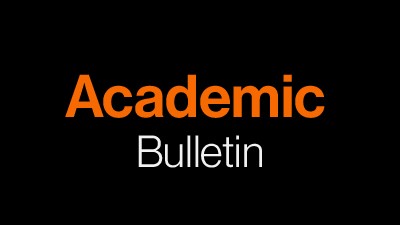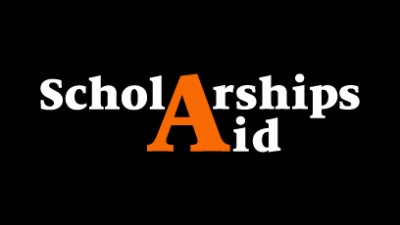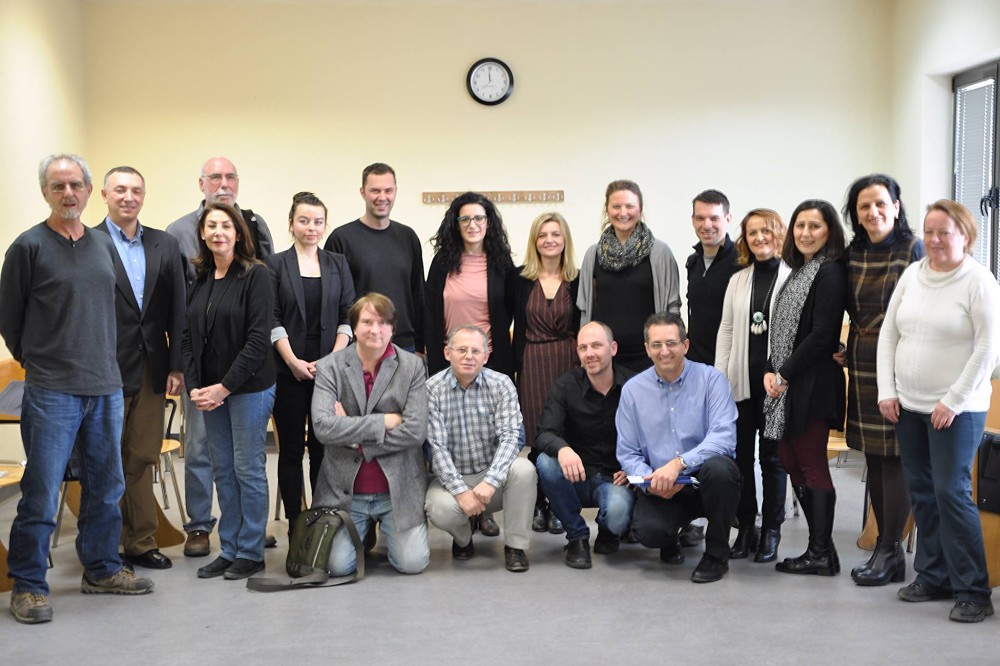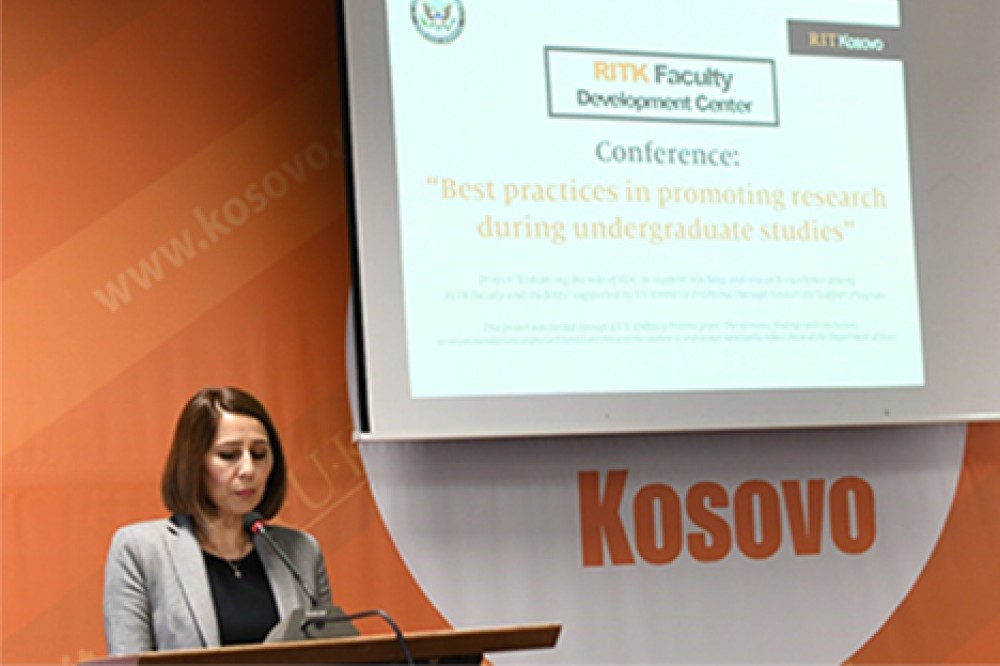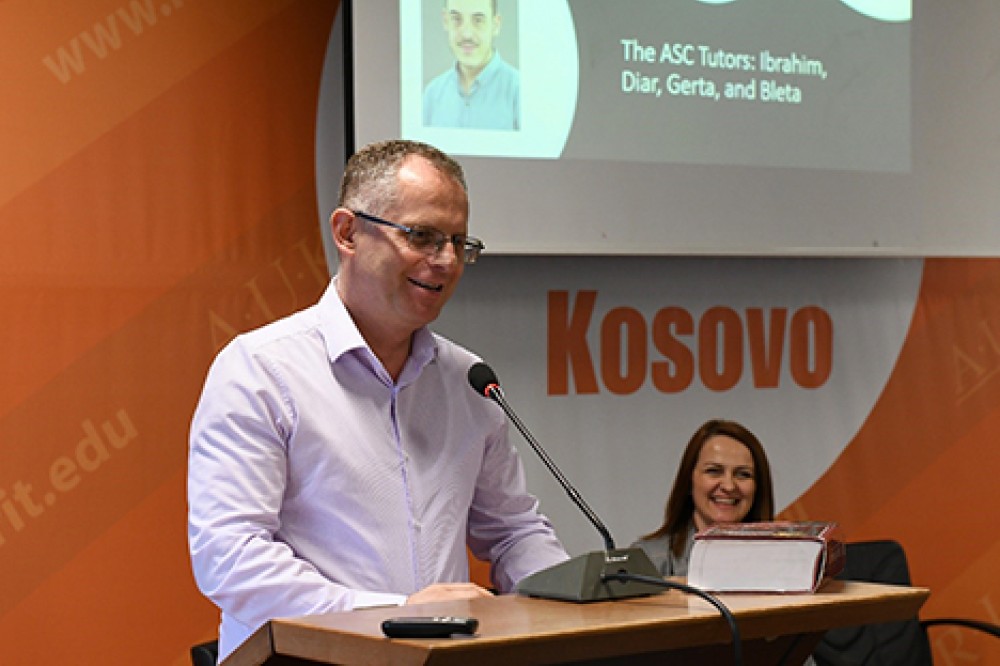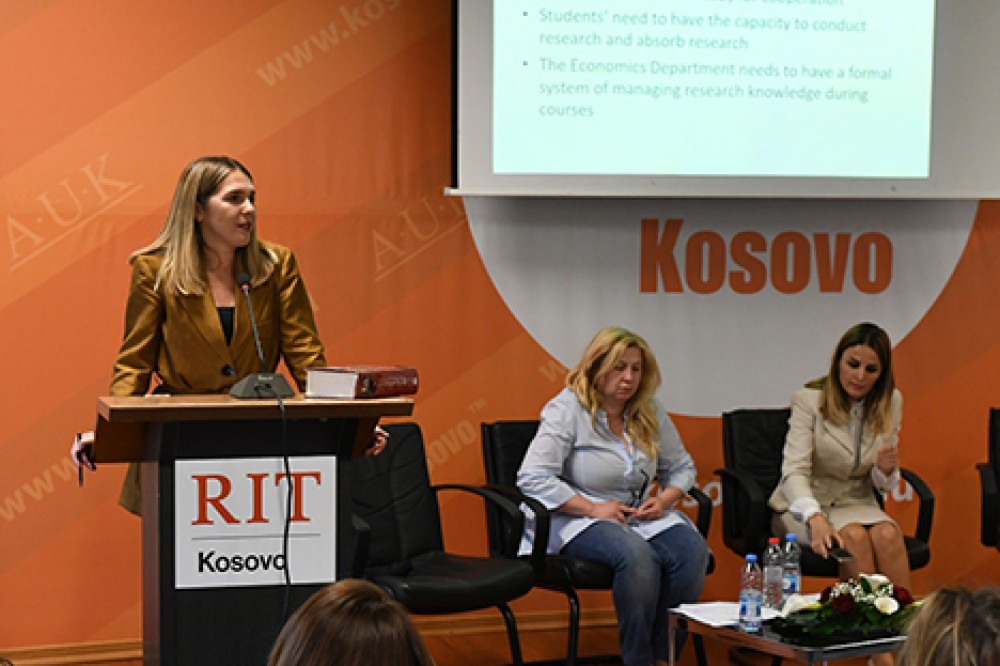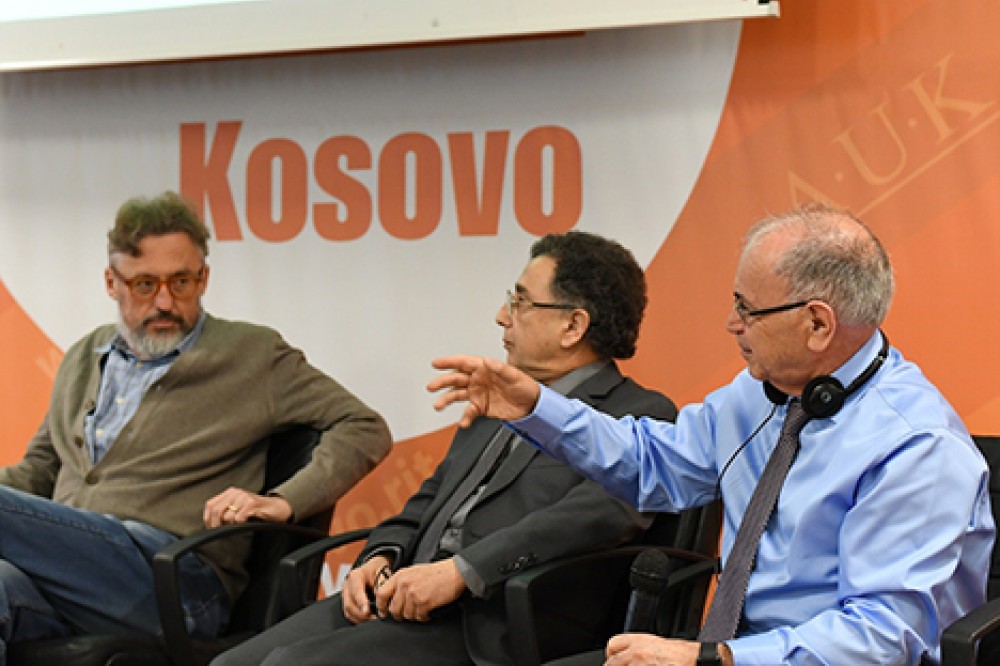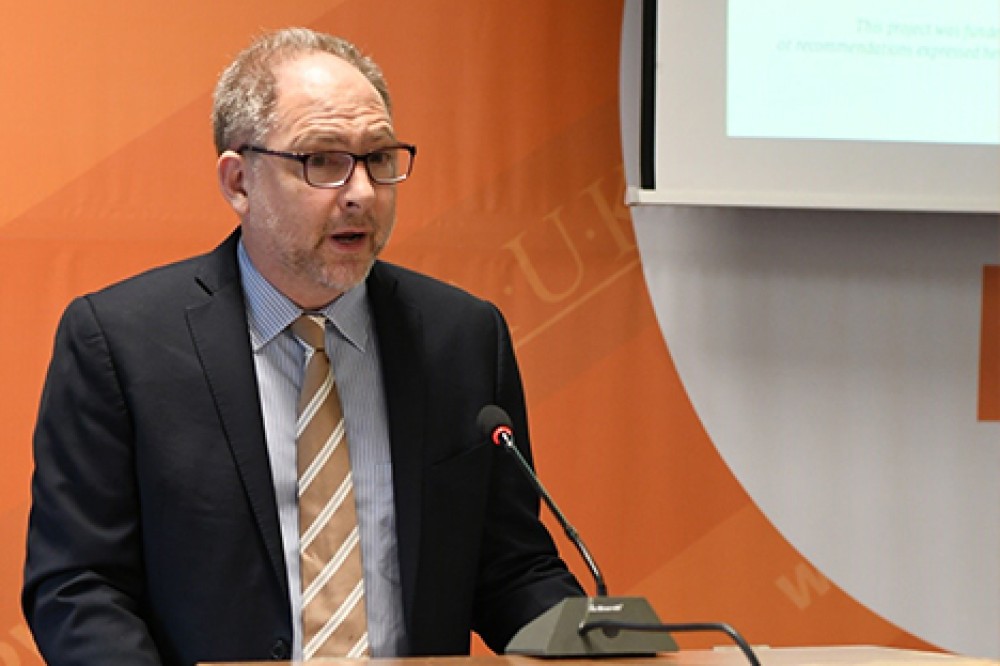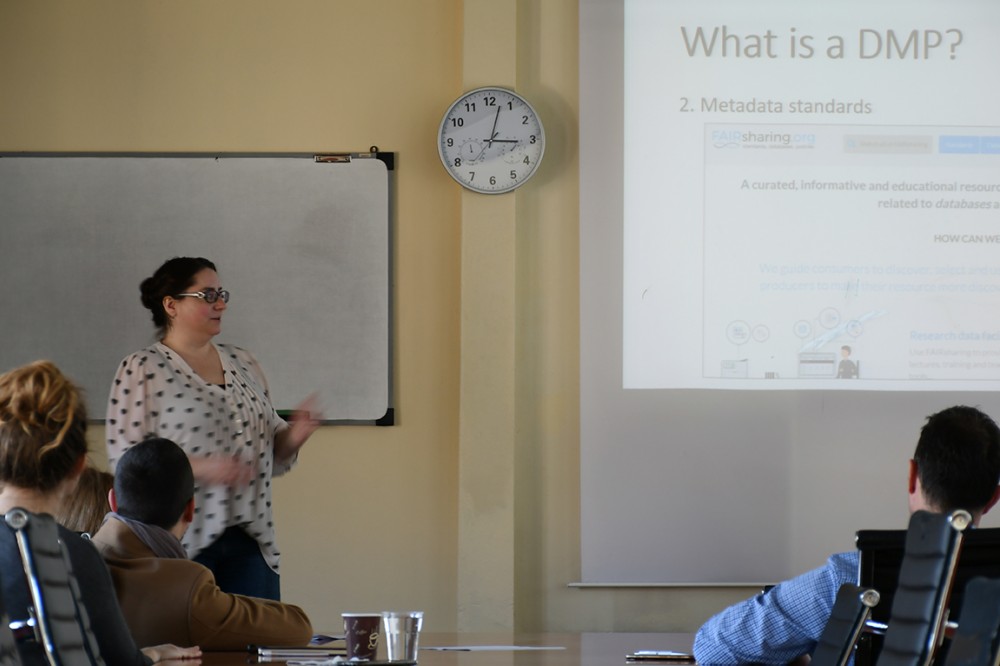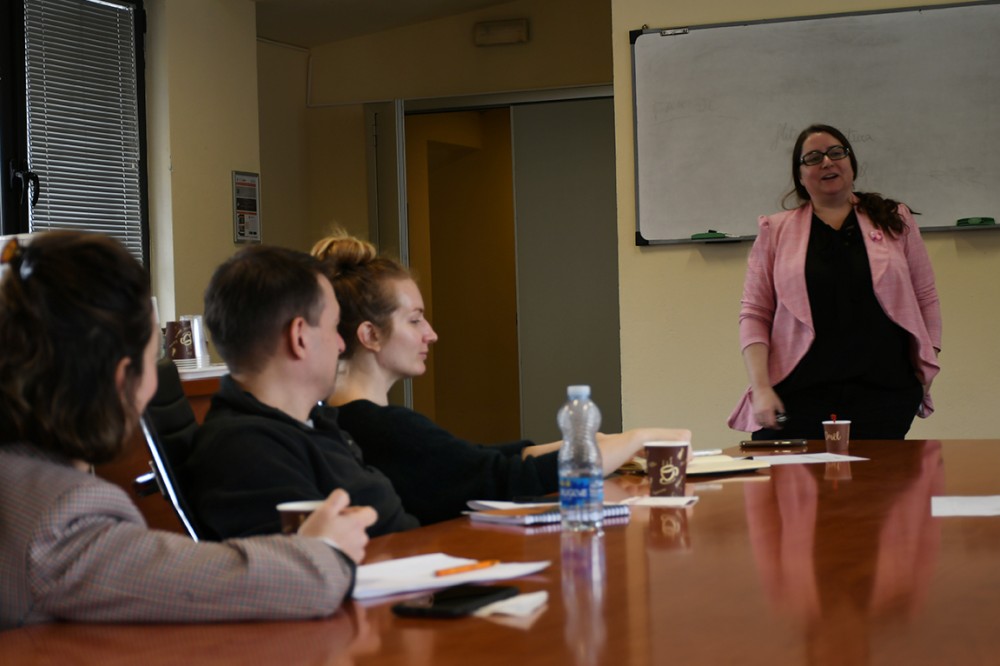Faculty Development Center

Mission
The mission of the Faculty Development Center of RIT Kosovo (A.U.K) is to build an inclusive and sustainable teaching and learning environment by addressing faculty needs and interests in the areas of teaching effectiveness and professional development.
History
RIT Kosovo (A.U.K) Faculty Development Center was established in October 2015 with the financial support of the U.S Embassy through a University Support Grant (USG). This grant enabled us to get the professional support of the Director of The Faculty Development Center of San Jose State University - California, Dr. Amy Strage (http://www.sjsu.edu/cfd/) for establishing the Center and identifying its initial activities.
The Coordinator of the Faculty Development Center is our Math professor, Mimoza Polloshka, who worked with Dr.Strage and other stakeholders at RIT Kosovo (A.U.K) to establish the Faculty Development Center.
Goal
Our goal is to provide members of the broader campus community with resources to assist them in their work. The ultimate goal of the center is to provide the faculty body at RIT Kosovo (A.U.K) with an ongoing opportunity to develop new teaching approaches for the purpose of meeting our students’ learning needs. The classroom is an ever-changing environment whose dynamics is overly dominated by the student learning culture so, as a center, we will strive to find ways to balance between students’ learning expectations and what we believe is the state of the art learning.
The Guide for Aligning Curricular Development with Labor market Needs:
English Version
Albanian Version
Serbian Version
Enhancing the role of FDC to support teaching and research excellence among RITK faculty and students
Faculty Development Center of RITK (A.U.K) won a competitive grant from US Embassy through University Support Grant Program for implementing the project - “Enhancing the role of FDC to support teaching and research excellence among RITK faculty and students “.
The project was organized in three phases and the idea of the project was concluded from the analysis of the report of the faculty needs assessment survey, conducted during the spring 2018 semester.
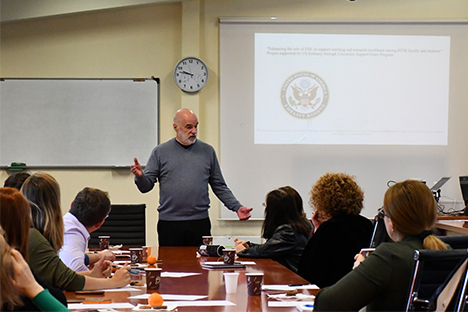
First phase of the project
First phase of the project was implemented during November 2018 (November 13-16), and it included the training workshops in the topics:
- Building a Strong and Sustainable Teacher - Student Rapport to Assure Student Engagement
- Promoting Research - Based Classes
Prof. John Parish-Sprowl , from Indiana University, conducted the training workshops and also worked closely with our faculty during his visit, where he attended several classes in order to get a feeling of the existing teacher-student rapport among the faculty with their students and so he tailored the training in context. Faculty found the class visits and the both topics of the training workshops very helpful and applicable in their teaching.
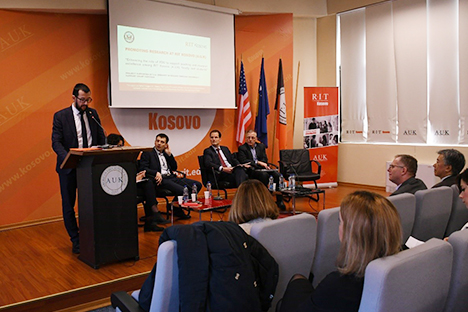
Second phase of the project
Second phase of the project Conference on topic “Promoting research at RITK (A.U.K.)”. The conference was organized on March 1st 2019 and gathered the RITK community (Faculty and students) who are mainly involved in research; representatives from Balkan Universities as well as RITK alumni from Honors society and alumni working in research related institutions. The conference contributed to the discussion on how to promote research in academic institutions, and as well, it was a good opportunity for the RITK to reach out to its alumni and showcase their work and contribution in research.
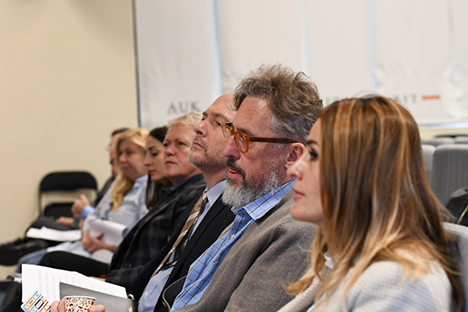
Third phase of the project
Third phase of the project Conference “ Best practices in promoting research during undergraduate studies”, organized on May 13th 2019. Due to the importance of the topic, the FDC of RITK wanted to use the momentum that by sharing the experiences from US universities and universities in the region, to open the discussion how can the integration of research in undergraduate studies be promoted and improved. The conference served as a venue to open the discussion for this topic among faculty of different universities and our students (current and alumni).
The experiences from the US Universities shared in the first panel, with the following guest speakers:
- Mohammad Behi, Ph.D. from the , New Jersey Institute Technology (NJIT), Department of Mechanical and Industrial Engineering
- Ahmad Zargari, Ph.D., CSTM, from the College of Business and Technology, School of Engineering and Information Systems, Morehead State University
- James Hall, Ph.D., from Rochester Institute of Technology, Rochester, United States, School of Individualized Study
The experiences from the Universities in the region, shared in the second panel with the following guest/ host speakers:
- Natalija Popovska, Ph.D. - from the Institute of National History, Skopje, North Macedonia
- Mrika Kotorri., Ph.D., from the Economics Department, Faculty of Economics, University of Prishtina
- Lorraina Pinnell., Ph.D. & Julie Kolgjini., Ph.D., from RITK (A.U.K)
Conference abstracts (download here ![]() )
)
The diversity of the selected presentations contributed to the discussion and was of a great interest for the participants.
The conference rapporteur summary (download here ![]() ) presented at the end of the conference by Prof. Linda Ziberi, PhD., and Prof. Besnik Bislimi, PhD., enabled us to draw recommendations that will help the FDC to prioritize the activity agenda for the next academic year. Another priority for the future activities of the FDC will be to find ways how to develop activities that will enable faculty to include more the research component in their courses.
) presented at the end of the conference by Prof. Linda Ziberi, PhD., and Prof. Besnik Bislimi, PhD., enabled us to draw recommendations that will help the FDC to prioritize the activity agenda for the next academic year. Another priority for the future activities of the FDC will be to find ways how to develop activities that will enable faculty to include more the research component in their courses.
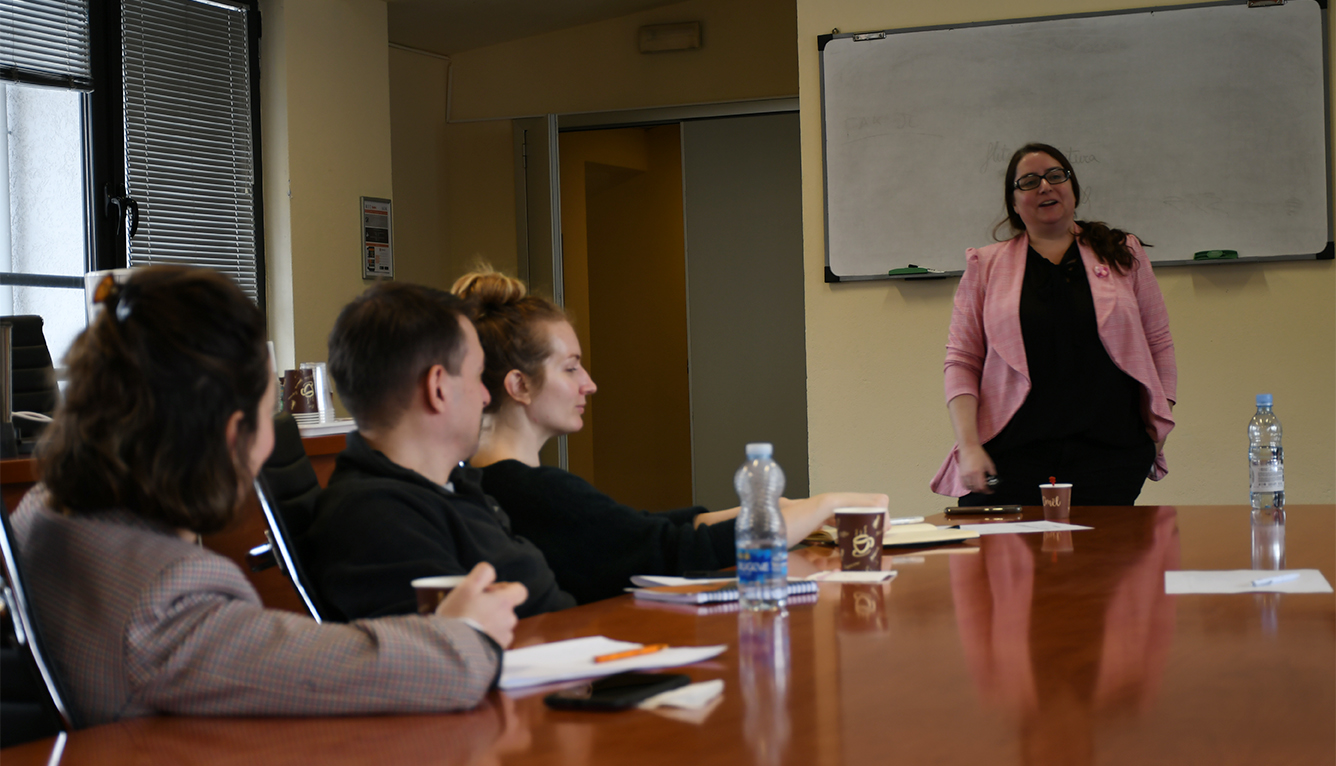
RITK Faculty Development Center Workshops
Faculty Sessions
Browse our past Friday sessions.
RITK Faculty Development Center (February 2019) Workshops:
On January 31st and February 7th , Michele Gibney - a PhD student in Scholarly Communication, currently in Kosovo as part of a Fullbright award conducted two workshops for our faculty.
Finding a Home for Your Publication
Are you interested in learning some tips and tricks to identifying journals and conferences appropriate to your research? Michele Gibney is a visiting PhD student in Scholarly Communication, currently in Kosovo as part of a Fulbright award. Michele will begin by providing guidance on selecting the best journal for a publication, avoiding predatory publishers, and maximizing the impact of a publication. She will then cover similar topics related to disciplinary conferences for academics. At the conclusion of this short workshop, attendees should come away knowing a variety of tools to assist in their publication and research promotion endeavors and how to implement them.
https://works.bepress.com/michele_gibney/66/
Data Management and Open Educational Resources
In this two part presentation, Michele Gibney, a visiting PhD student in Scholarly Communication, currently in Kosovo as part of a Fulbright award, will cover the separate topics of creating and implementing a data management plan that adheres to funding requirements and identifying, adopting, and adapting open educational resources (OER) for use in the classroom. Data management can be an important element in grant applications as well as being valuable for those without grants who produce data in the course of their research and want or need to share it for increasing dialogue in the field, reproducibility, or citation advantage. Using OER in the classroom can increase student engagement with course material, lead to a higher retention rate, and ensure access to the reading on the first day of classes. An introduction and overview to both of these topics will be covered in the course of this single presentation. Attendees should come away with a solid understanding of websites and tools catering to these topics, which will help them in the future.



